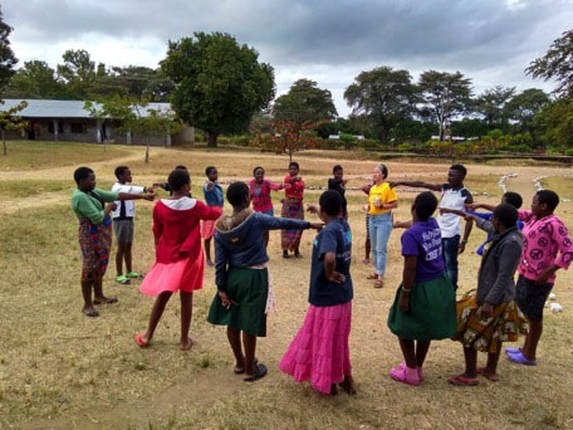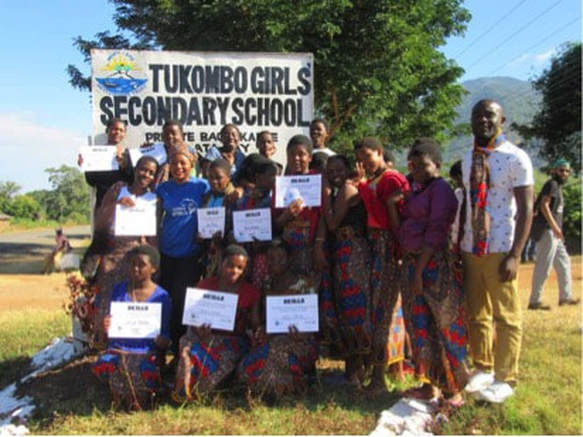Written by CorpsAfrica/Malawi Volunteer Mr. Silvester Kunkeyani
A soccer ball, simple but very powerful. Have you ever wondered what magical power soccer possesses that makes people so obsessed with it? Well, knowing how powerful this sport can be, we organized a girl’s empowerment camp where the Peace Corps collaborated with CorpsAfrica to deliver the most powerful Grassroot Soccer (GRS) camp at Tukombo Girls Secondary School from 5th -9th July 2018. By definition (from their website) GRS is an adolescent health organization that leverages the power of soccer to educate, inspire, and mobilize youth in developing countries to overcome their greatest health challenges, live healthier, more productive lives, and be agents for change in their communities. GRS connects young people with the mentors, information, and health services they need to thrive, and empowers adolescents to make educated choices about pressing health challenges such as HIV/AIDS, sexual health, gender-based violence, and malaria.
Before the actual event at Tukombo Girls Secondary School in Nkhata Bay district, 25 Facilitators including six volunteers from CorpsAfrica, six volunteers from Peace Corps, 11 local teachers and one medical doctor from Kamuzu Central hospital gathered for a 2-day preparation workshop at Sambani Lodge in Nkhata Bay district. After two days of preparation and teach backs we headed to Tukombo girls where we were warmly welcomed by 200 young girls including 175 girls from Tukombo Girls Secondary School and 25 girls from Kalowa Community Day Secondary School.
GRS developed the “SKILLZ” curriculum, which focuses on using the world’s most popular sport to help boys and girls adopt healthy lifestyles. Through a series of interactive activities and discussions, students from both Tukombo and Kalowa gained an understanding of HIV and AIDS. Key topics included avoiding risks, building support networks, increasing knowledge about testing and treatment, addressing gender issues and fighting peer pressure. Perhaps one of the most important features of the SKILLZ curriculum is that it provides young people with a safe space to talk in places where both HIV/AIDS and their victims have historically been stigmatized.
At the end of our intervention, 200 girls graduated from the program and each one of them went home with a certificate, a 2-metre long cloth called chitenje in Malawi, and a menstrual pad (that they learned to sew themselves – a necessary skill that will allow them to be able to make their own re-usable sanitary pads in the future).


